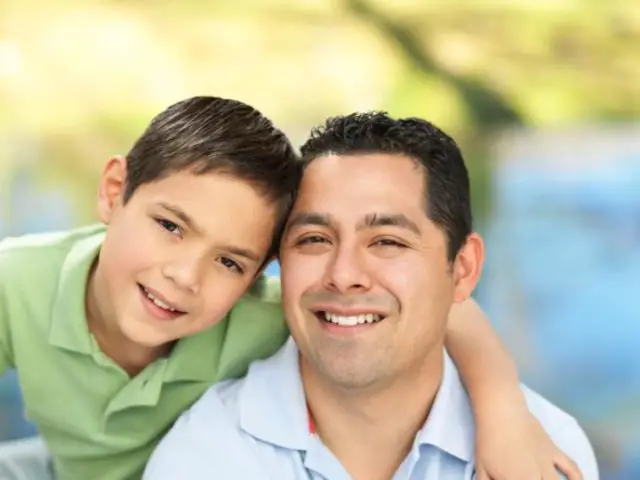Our grandparents used to say to us: “you have to raise your children with love and discipline”. Some generations, perhaps those of the greatest, we remember that after each mischief or wrong action we obtained a consequence that, although in some cases it could be something extreme, also made us learn at first when we were told not to do a specific thing.
But, today, the roles and most of the family dynamics have been reversed. Parents only give what they understand as love and the child chooses how hard to punish them. It is common to see children or young people indifferent to adult needs or, even worse, to ignore the signals of their elders.

While the rights of children must be respected, it is also their right that their parents are not negligent and can understand that adults must assume responsible parenting. It is good to negotiate some things, but there are others that cannot be negotiated.
It is good for children to express their point of view, but not that they have to do what they say just because they do. The problem is that he/she is confused about responsibility. The child’s responsibility is to play and grow, to learn at home and at school; it does not have to be sent alone or to give orders to his/her parents.
Selling to children wrong ideas of their reality makes them vulnerable for the future. They are not the ones who rule, and the last word will always be that of the father or the mother; because that is the school, so that later they respect their heads or elders.
What is negotiable is what parents choose, not what the child wants to negotiate. Because they may want to argue with everything but, in real life, there are rules that we cannot discuss. And if your child does not learn it at home, it is possible that as an adult he/she develops an arrogant or a petulant attitude that will lead him/her to feel untouchable.
Although we are all unique, it is urgent to teach children that the differences between people are natural; that although sometimes we have good ideas we will not always win; that there are always winners and losers; that they will always be better than someone and worse than others; that is worth rejoicing in their friends’ achievements without feeling envy, and that will not always reach their goals at the first attempt because in life everything costs.
It is sad to see how, from a few generations ago, the children became demigods and the parents become slaves or lackeys, who cater to the whims and demands of the children. It is incomprehensible that a child or young person speaks in a bad tone to the father or mother and they run to ask for forgiveness, get depressed or wonder what they did wrong so that their children do not tell them that they love them.
Children are loved just for the simple fact of existing and, many times, when you correct your child you will not understand that this is a way to love him, because loving implies not only remembering how cute and unique he/she is but also implies restrict him/her; let him/her be wrong and accompany it in his/her defeats.
That is to say, to allow him/her to understand that the world is not governed by his/her own rules, but that there will be times when he/she will simply correspond to other standards, and that he/she probably does not agree with them. But, in the end, everything will be part of his/her permanent learning as an individual, as a member of a family, and of the society which he/she belongs to.

